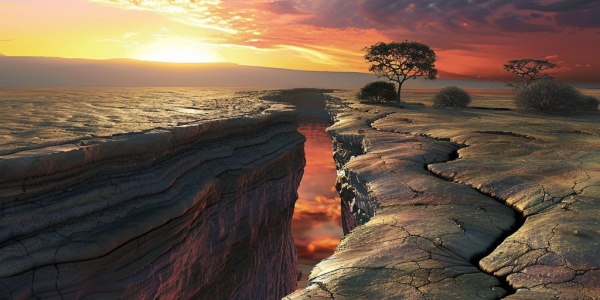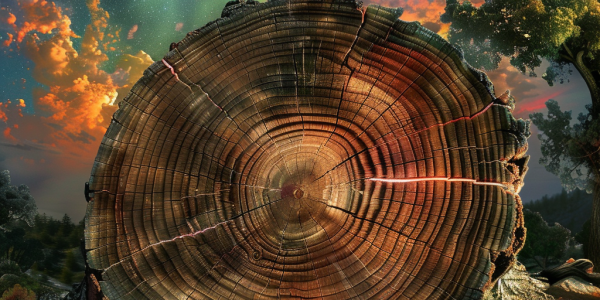Decline in Cloud Cover Linked to Record Global Temperatures
Recent research reveals that a significant decline in low-lying cloud cover in 2023 has contributed to record global temperatures, averaging 1.5°C above pre-industrial levels. This decrease in cloud cover has reduced Earth’s albedo, leading to increased solar energy absorption. As scientists investigate the complex interplay between cloud dynamics and climate change, understanding these factors is crucial for future climate models and mitigation strategies.
Solar Maximum: Exciting Times for Skywatchers and Scientists Ahead
The sun is currently experiencing solar maximum, leading to increased solar flares and breathtaking auroras visible from Earth. This active phase of the 11-year solar cycle is expected to continue for another year, providing exciting opportunities for skywatchers and scientists alike. The Parker Solar Probe is set to make its closest approach to the sun, allowing for unprecedented data collection on solar activity and its impact on space weather.
Scientists Discover Formation of Earth’s Sixth Ocean in East Africa
Scientists have discovered the potential formation of Earth’s sixth ocean due to tectonic plate movements in East Africa. This geological phenomenon, driven by the separation of the African, Arabian, and Somali plates, could transform the continent’s geography and economy, impacting landlocked countries and creating new marine habitats. Advanced GPS technology is enabling precise tracking of these changes, offering insights into Earth’s dynamic processes and the future of global geology.
Research Suggests Potential for Life on White Dwarf Planets
Recent research suggests that planets orbiting white dwarfs, the remnants of stars that have exhausted their nuclear fuel, may be viable candidates for sustaining life. This study highlights the long lifespan and potential habitable zones around white dwarfs, which could provide stable environments for biological evolution. With the possibility of liquid water and geological activity, these celestial bodies challenge traditional astrobiology views and expand the search for extraterrestrial life.
The Challenge of Establishing Accurate Timekeeping on the Moon
As humanity prepares for a sustained presence on the Moon, researchers are tackling the challenge of accurate lunar timekeeping. Recent studies reveal that time on the Moon flows differently than on Earth, influenced by gravitational forces and Einstein’s Theory of Relativity. The White House has called for a lunar time standard to support future missions and bases, highlighting the importance of precise timekeeping for navigation and communication in space exploration. This initiative is crucial for NASA’s Artemis missions and future endeavors beyond Earth.
DART Mission Marks Milestone in Planetary Defense Against Asteroids
NASA’s DART mission has revolutionized planetary defense by successfully demonstrating asteroid deflection capabilities. Launched in 2021, DART’s collision with Dimorphos on September 26, 2022, marks a significant step in safeguarding Earth from potential asteroid impacts. Experts emphasize the need for improved detection technologies and global collaboration to enhance our planetary defense systems.
Earth Temporarily Acquires Second Moon: Asteroid 2024 PT5
Scientists have confirmed that Earth has temporarily acquired a second moon, an asteroid named 2024 PT5, measuring 11 meters in diameter. Discovered by astronomers from the Complutense University of Madrid, this mini-moon entered Earth’s gravitational influence on September 29, 2024, and will exit on November 25, 2024. This unique event offers a rare opportunity for researchers to study the interactions between small celestial bodies and Earth, enhancing our understanding of asteroid dynamics and potential planetary defense strategies.
Astronaut Captures Stunning ‘Space Fireflies’ Amid Satellite Concerns
Nasa astronaut Don Pettit captures stunning images from the International Space Station, showcasing the phenomenon of ‘space fireflies’—flashes of sunlight from SpaceX’s Starlink satellites. As SpaceX launches over 6,700 satellites to provide global internet access, concerns grow among astronomers about their impact on celestial observations. The balance between technological advancement and scientific integrity is crucial as discussions on mitigating satellite glare continue.
Ancient Solar Superstorm Discovered Through Tree Ring Analysis
Researchers have discovered a solar superstorm from 664 BCE, revealed through ancient tree rings showing a spike in carbon-14 levels. This significant event, witnessed by the Assyrians, highlights the potential impacts of such storms on modern technology. Published in Communications Earth & Environment, the study emphasizes the importance of understanding solar activity to prepare for future solar events and protect our infrastructure.
Asteroid 2020 XR to Make Historic Close Approach to Earth on December 4, 2023
On December 4, 2023, asteroid 2020 XR will make its closest approach to Earth, passing within 1.37 million miles. This massive asteroid, comparable to a football stadium and traveling at 27,500 mph, offers a unique opportunity for astronomy enthusiasts to observe a potentially hazardous near-Earth object. Live coverage will be available from the Virtual Telescope Project, and observers can use telescopes to witness this historic flyby. Stay updated for this exciting celestial event!










